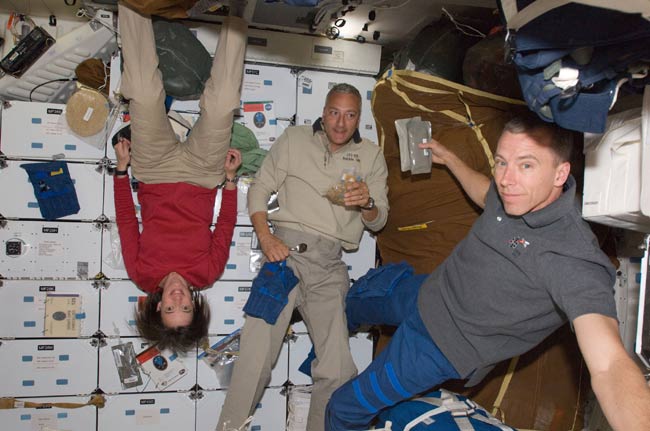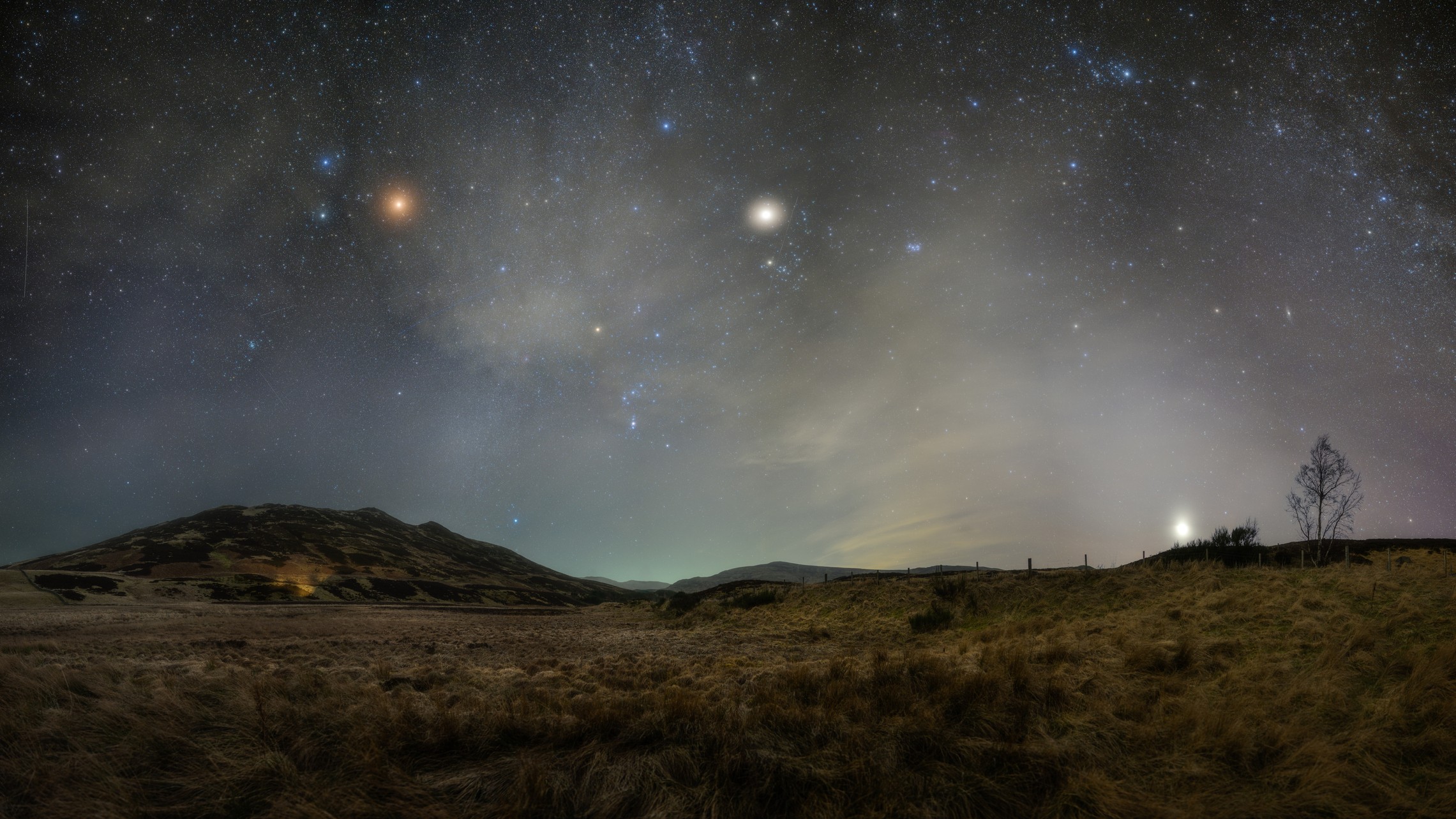Astronauts Take Time Off After Fixing Hubble

Breaking space news, the latest updates on rocket launches, skywatching events and more!
You are now subscribed
Your newsletter sign-up was successful
Want to add more newsletters?
This story was updated at 5:21 a.m. EDT.
HOUSTON — After a tough week fixing up the Hubble Space Telescope, it's time for a break for the seven astronauts aboard the shuttle Atlantis.
Shuttle commander Scott Altman and his crew will take some hard-earned time off Wednesday and rest up from their exhausting service call to give the 19-year-old space telescope another five or 10 years of orbital life.
The astronauts set Hubble free on Tuesday after a five-day spacewalk marathon to boost its cosmic vision and revive ailing science instruments. They are the last humans ever to see Hubble up close and left it more powerful than ever.
"Looking back at this mission, it has been an incredible journey for us as well," Altman said as Hubble slowly sailed away. "I think it has demonstrated the triumph that humans can have when they overcome challenges that are presented to them."
Altman and his crew are due to return to Earth on Friday to wrap up their 11-day mission to Hubble, NASA's fifth and last-ever flight to the iconic space telescope. Today, all they plan to do is discuss their mission with dignitaries and reporters on Earth, and then chat with astronauts aboard the International Space Station in a cosmic phone call.
Hubble reborn
During their mission's five back-to-back spacewalks, four Atlantis astronauts worked in two-man teams to install two new instruments, repair two broken ones that were never built to be fixed in space and replace other vital gear, like gyroscopes and batteries that were wearing out. Not only did the tireless astronauts overhaul Hubble, but they pushed through stuck bolts and handrails, flaky foil insulation and balky gyroscopes to hit all their mission goals.
Breaking space news, the latest updates on rocket launches, skywatching events and more!
Hubble's new instruments should push its vision deeper into space and peer back to a time when the universe was just 500 million years old. The universe is currently 13.7 billion years old. Hubble scientists plan to begin calibrating the space telescope next week and resume science observations by the end of summer.
The astronauts also installed a docking ring that will allow a robotic spacecraft to latch onto Hubble sometime in the 2020s and send it down to the Pacific Ocean at its mission's end.
Mission Control roused the crew early Wednesday with the theme music from the original "Star Trek" television show. The tune, composed by the late Alexander Courage, was chosen for the entire crew.
"That was a great wake-up call for the whole crew," one of the astronauts said this morning. "I'd just like to say to every one on the great planet Earth, 'Live long and prosper.'"
SPACE.com is providing continuous coverage of NASA's last mission to the Hubble Space Telescope with senior editor Tariq Malik in Houston and reporter Clara Moskowitz in New York. Click here for mission updates and SPACE.com's live NASA TV video feed.

Tariq is the award-winning Editor-in-Chief of Space.com and joined the team in 2001. He covers human spaceflight, as well as skywatching and entertainment. He became Space.com's Editor-in-Chief in 2019. Before joining Space.com, Tariq was a staff reporter for The Los Angeles Times covering education and city beats in La Habra, Fullerton and Huntington Beach. He's a recipient of the 2022 Harry Kolcum Award for excellence in space reporting and the 2025 Space Pioneer Award from the National Space Society. He is an Eagle Scout and Space Camp alum with journalism degrees from the USC and NYU. You can find Tariq at Space.com and as the co-host to the This Week In Space podcast on the TWiT network. To see his latest project, you can follow Tariq on Twitter @tariqjmalik.
